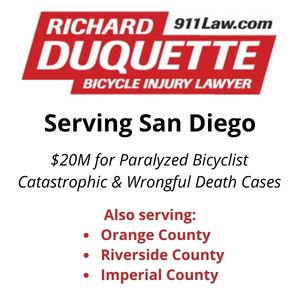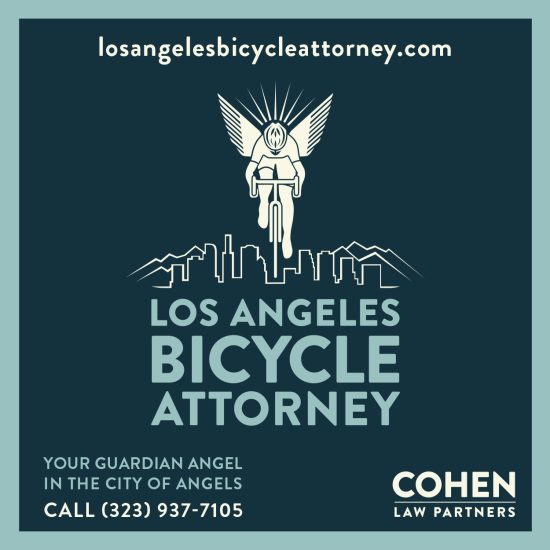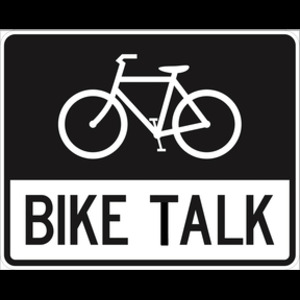
About damn time.
Bike activism finally returned to the mean streets of Los Angeles, with the city’s first people protected bike lane, courtesy of a new group calling itself People Protected LA.
Their message, “LA needs safe streets, not lip service.”
Which is exactly what they got in remarks from LA’s mayor, who took a break from his unannounced campaign for president to defend the city’s Vision Zero program at the annual convention of the National Association of City Transportation Officials, better known as NACTO.

Speaking at the conference Tuesday, Garcetti said the city has implemented “over 1,200 Vision Zero improvements” but said he recognizes that not all of them will work out as planned…
“They’re like, ‘Oh, it’s not done yet, people are still dying’,” Garcetti said. “Well, we had a 7 percent reduction last year (and a) double-digit reduction in pedestrians this year — those are real people that are still living. You can’t quantify who they are, but that is worth it … because those are people who are going to be alive for decades from now because of those improvements. So our reach must always exceed our grasp.”
Which sounds great, if you ignore the 80% increase in pedestrian deaths over the last two years, or the six bicyclists who were killed in traffic collisions in just the first four months of this year.
Not to mention the continued failure to build the network of safe bikeways we were promised with the 2010 bike plan.
Or the cancellation of nearly every planned road diet project by frightened councilmembers, after LA Mayor Eric Garcetti pulled the rug out from under Westside Councilmember Mike Bonin by ordering the removal of the bike lanes and road diets he was fighting to protect in Playa del Rey.
Let alone Garcetti’s repeated failure to defend his own Vision Zero and Great Streets programs at any of the city’s countless contentious public meetings, leaving it to bike and pedestrian advocates to do his job for him.
Which makes a protest like yesterday’s people protected bike lane almost inevitable.
And necessary.

This is how a press release from the organizers of the people protected bike lane addressed the protest.
Mayor Eric Garcetti launched Vision Zero in 2015 and set a goal for 2017 of a 20% reduction in traffic deaths. Instead, Los Angeles has seen a 34% increase in traffic deaths. Last year, 245 Angelenos were tragically killed in traffic collisions. LADOT has determined that speed is the primary factor causing unnecessary loss of life, and that improvements to roadway infrastructure are critical in reducing deadly speeding, yet proposed projects like North Figueroa Street, 7th Street, Fletcher Drive, Manchester Boulevard, Martin Luther King Jr. Boulevard, Temple Street, and Venice Boulevard have languished or been cancelled outright.
Up to this point, LA’s Vision Zero program has been a major disappointment.
And to be perfectly honest, so has the mayor for the past few years.
Let’s hope he gets the message, and refocuses his attention on the people and the city that elected him.
And finally turns Vision Zero into the transformative, life saving program we were promised.

Streetsblog’s Joe Linton offers more on Garcetti’s remarks and the protest, saying LA’s mayor doesn’t “appear to have used his considerable influence to help councilmembers to better embrace Vision Zero.”
No, he hasn’t.
All photos by Michael MacDonald.
………
Tragic news from Rialto, where the father of a three-year old girl remains in a medically induced coma after a heartless coward crashed into his bike, and left him bleeding and barely conscious in the street.
Andy Welch was riding his bike to the market when he was run down by a hit-and-run driver, laying crumpled in the street for nearly half an hour as more drivers sped by.
He was finally able to crawl to his cellphone and call for help.
This is yet another tragic reminder of California’s pervasive hit-and-run epidemic.
And the near total lack of action on the part of our elected officials, who have the power to stop it.
Yet don’t seem to recognize the problem.
………
Local
See above.
State
Caltrain develops a new bike plan to accommodate bicyclists, but bike riders say it doesn’t go far enough.
A San Diego writer traces the engineering mistakes and bad political decisions that turned busy Clairemont Blvd into a dangerous “stroad.” And questions whether it will be the next San Diego street to get a road diet and bike lanes, which some local residents consider a “conspiracy to make driving so difficult that we all will be forced to pedal bicycles.” They’re onto us, comrades.
A Santa Barbara bicyclist offers advice for motorists, like don’t door bike riders and signal your damn turns. Although he may not have actually said the d-word.
National
A writer on an automotive website says scooters are a menace, but it’s okay to feel conflicted about bikes as long as you don’t take it out on the riders.
Singletracks questions why e-mountain bikes are still fighting for acceptance in the US, despite their popularity in Europe.
A local newspaper talks with America’s other ex-Tour de France winner about his new Portland-area cannabis shop, and how he moved from illegal doping to legal dope.
They get it. The Denver Post says e-scooters may be a headache, but the solution is building more bike lanes to accommodate their users, while the city works on a pre-paid rental plan to get users to ditch their cars.
A bike-riding Colorado Springs CO city councilmember says the city must accommodate alternative forms of transportation.
According to a Nebraska planning professor, safe and efficient self-driving cars could block efforts to build walkable, bikeable and livable communities.
A pair of musicians stop in Ohio on their 4,300 mile tour of the US by bicycle.
The Brown University paper calls the arrival of Uber’s JUMP electric bikeshare program a giant leap for Providence RI.
A Connecticut public radio station spends an hour discussing the origins of bicycles, and how bikes helped inspire the women’s movement over century ago.
A cannabis website examines New York’s illegal bicycle weed delivery services.
International
A local writer describes how Bogotá’s ciclovía has become a part of life for an entire generation.
Lime scooters invade Canada.
New British government figures show the number of pedestrians injured in collisions with bicyclists reached an all-time high of 531 last year. However, despite the obvious implication, there’s no word on who was at fault in the crashes, or whether it was simply due to the increased number of people riding in the UK. That said, it’s a reminder to always use care around people on foot, who can be unpredictable and are the only ones more vulnerable than we are.
I want to be like him when I grow up. A 75-year old man from the UK just finished a 4,000 mile bike ride across the US.
Maybe its a sign of progress that bicycles are seen as a sign of progress in Armenia, as the new Prime Minister makes waves by riding the “first official state bicycle of the Prime Minister of the Republic of Armenia.”
An Indian website says now is the best time to own a bicycle, and the country’s first homegrown ebike will help you burn more calories than cash.
Israeli government ministries appear to be arguing over the best way to kill the ebike boom.
Here’s another one for your bike bucket list. Mountain biking ancient Moroccan Berber trails.
Australian drivers — and some bicyclists — have a meltdown after someone posted a photo of a group of riders using the traffic lane, rather than the bike lane next to them.
A wanted Japanese criminal hid in plain sight during seven weeks on the run, touring the country by bike and posing for Facebook photos.
An Air Force major rode 375 miles across Korea to honor fallen service members.
Mountain biking champ Rebecca Rusch won an Emmy for her documentary Blood Road, retracing the infamous Ho Chi Minh trail through Vietnam, Cambodia and Laos to find the site of her pilot father’s death during the Vietnam war.
Two Chinese farmers are expanding their horizons by riding across the country one stage at a time; in the last five years their traveled over 12,400 miles.
Competitive Cycling
Former Olympian and cycling promoter David Chauner says the solution to cycling’s broken business model in the US is to develop a season long track cycling competition. Sort of like the World Cycling League he’s been trying to get off the ground, for instance.
Finally…
We may have to deal with angry drivers, but at least we don’t have to contend with road raging ‘roos.
And when dangerous streets mean saying goodbye like a fighter pilot going into war.
Which isn’t the least bit funny.






Thanks for being the mouthpiece for bike advocacy in SoCal, Ted!